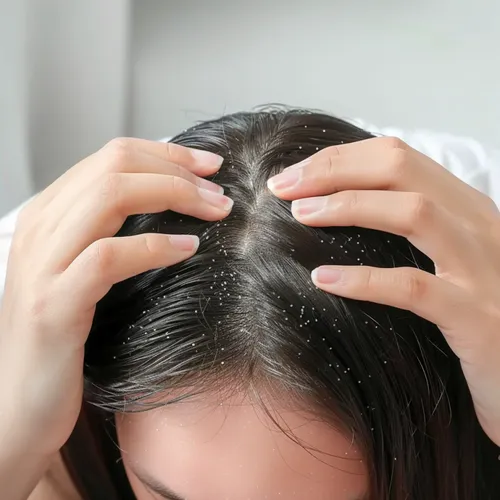Dandruff is a very common scalp ailment that affects millions of people in the UK and across the world. It is characterised by flakes and itching of the scalp, and can be a result of a variety of factors. Dandruff is not just a cosmetic issue; if left untreated, it can lead to serious problems such as hair loss, scalp irritations, and even infections.
Dandruff is caused by a group of bacteria and yeast known as Malassezia globosa. These bacteria and yeast feed on the oils in the scalp, producing an oily substance called sebum. This sebum can build up and create a build-up of dead skin cells on the scalp. This dead skin, combined with the oils, forms flakes that are visible on the scalp when they are disturbed or scratched.
The exact cause of dandruff is still not known, but there are certain factors that can increase the risk of it occurring. These include a dry scalp, infrequent shampooing, certain skin conditions such as eczema, stress, hormonal changes, and even certain types of hair products.
To treat dandruff, it is important to keep the scalp clean and moisturised. This can be done by shampooing regularly and using a gentle, moisturising shampoo. Other treatments include topical medications, such as shampoos containing pyrithione zinc and ketoconazole, and creams or lotions containing cortisone. In some cases, oral medications may be prescribed, but these should only be used under the direction of a doctor.
The Psychology of Dandruff
While dandruff has physical causes, it can also take a psychological toll. The visible flakes and constant itching can be embarrassing, impacting self-confidence and social interactions. Many feel self-conscious about their appearance with dandruff.
However, it’s important to remember that dandruff is an extremely common condition that affects nearly half of the population under the age of 50. You’re definitely not alone! With proper treatment and management, dandruff doesn’t have to control your life.
If you are experiencing dandruff, it is important to speak to your doctor or dermatologist. They can help identify the underlying cause of the issue and provide treatment options that can help reduce the symptoms. With proper treatment, dandruff can be effectively managed and should not be a long-term problem.
Products That Can Help With Dandruff
There are many products on the market that claim to be able to help solve the problem of dandruff. Some are better than others! At Zoom Health we recommend that you look at some of our natural soap products that can help with dandruff. These include Arabica Coffee and Cinnamon Soap, Dead Sea Mud Soap and Pine Tar Soap.
Natural Remedies for Dandruff
In addition to over-the-counter and prescription dandruff treatments, many natural remedies show promise for managing symptoms. For example, tea tree oil has antifungal properties that may help fight the fungus that causes dandruff. Apple cider vinegar is also thought to help reduce fungus and restore the scalp’s pH balance.
Another easy home remedy? Get some sun! Sunlight exposure can help inhibit the growth of dandruff-causing fungi. Just be careful not to overdo sun exposure and burn your scalp.
Dandruff Prevention Tips
While there’s no guaranteed way to prevent dandruff, a few habits can help keep those flakes at bay:
- Shampoo regularly to avoid oil and skin cell buildup
- Gently brush your scalp daily to loosen flakes
- Reduce stress through exercise, meditation, etc. (stress can worsen dandruff)
- Stay hydrated by drinking plenty of water
- Eat a balanced diet with foods like probiotics that promote healthy skin
Taking preventative measures is key, as dandruff often returns if you stop treatment. Consistently caring for your scalp health can save you the hassle of managing flare-ups.
Photo “Dandruff” by Anthony Cunningham for Zoom Health
Zoom Health is a leading UK supplier of Home Health Tests and Earplugs





